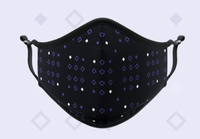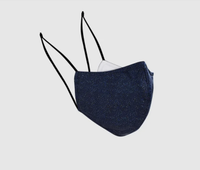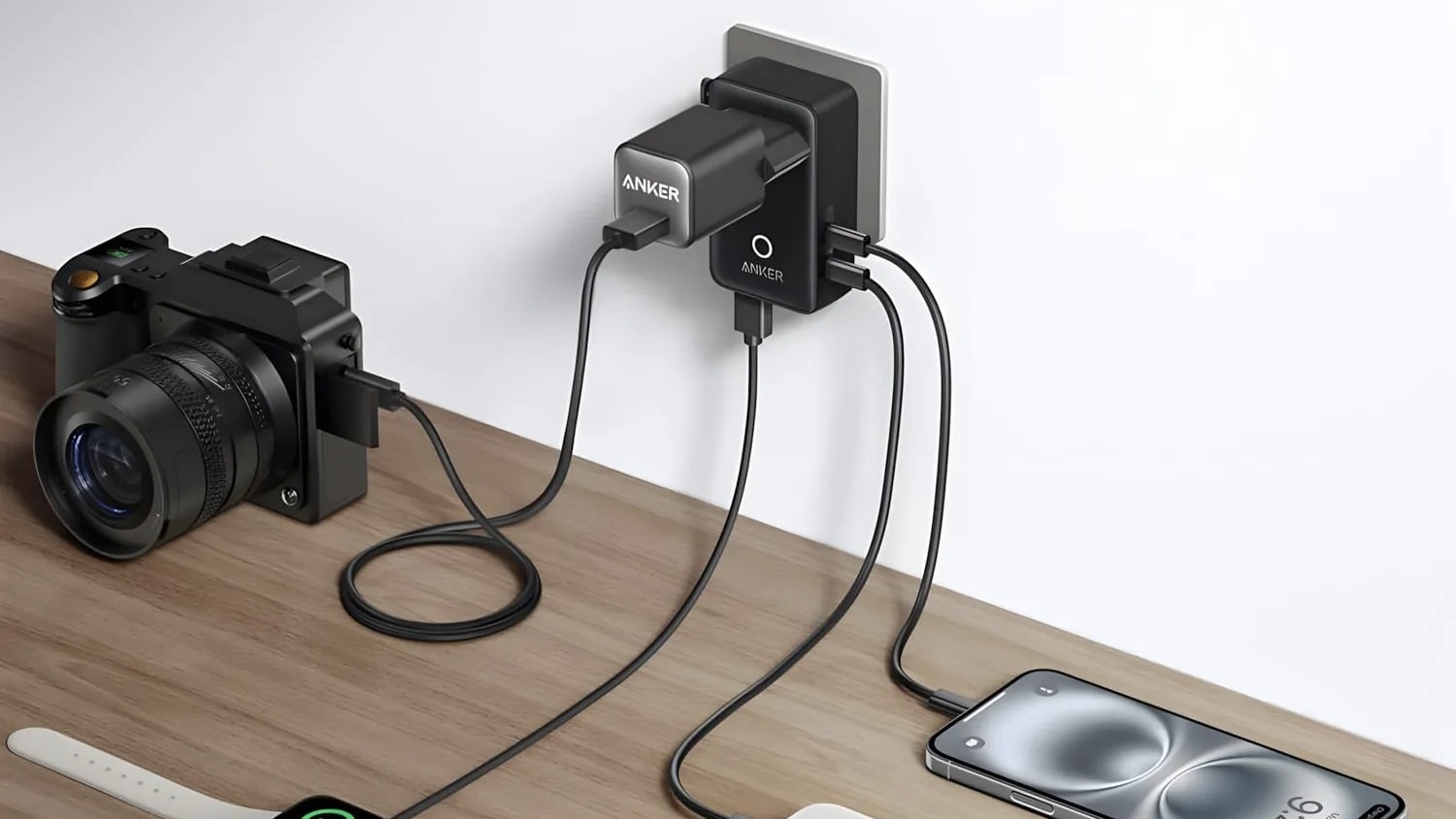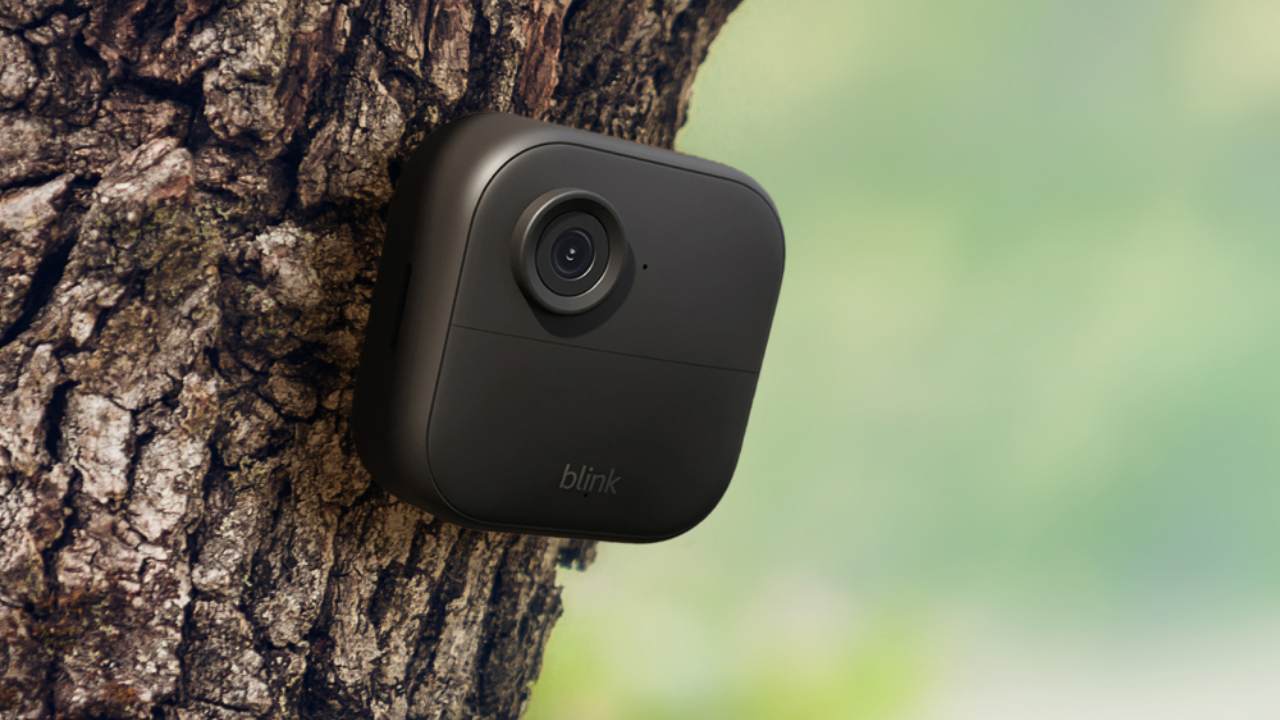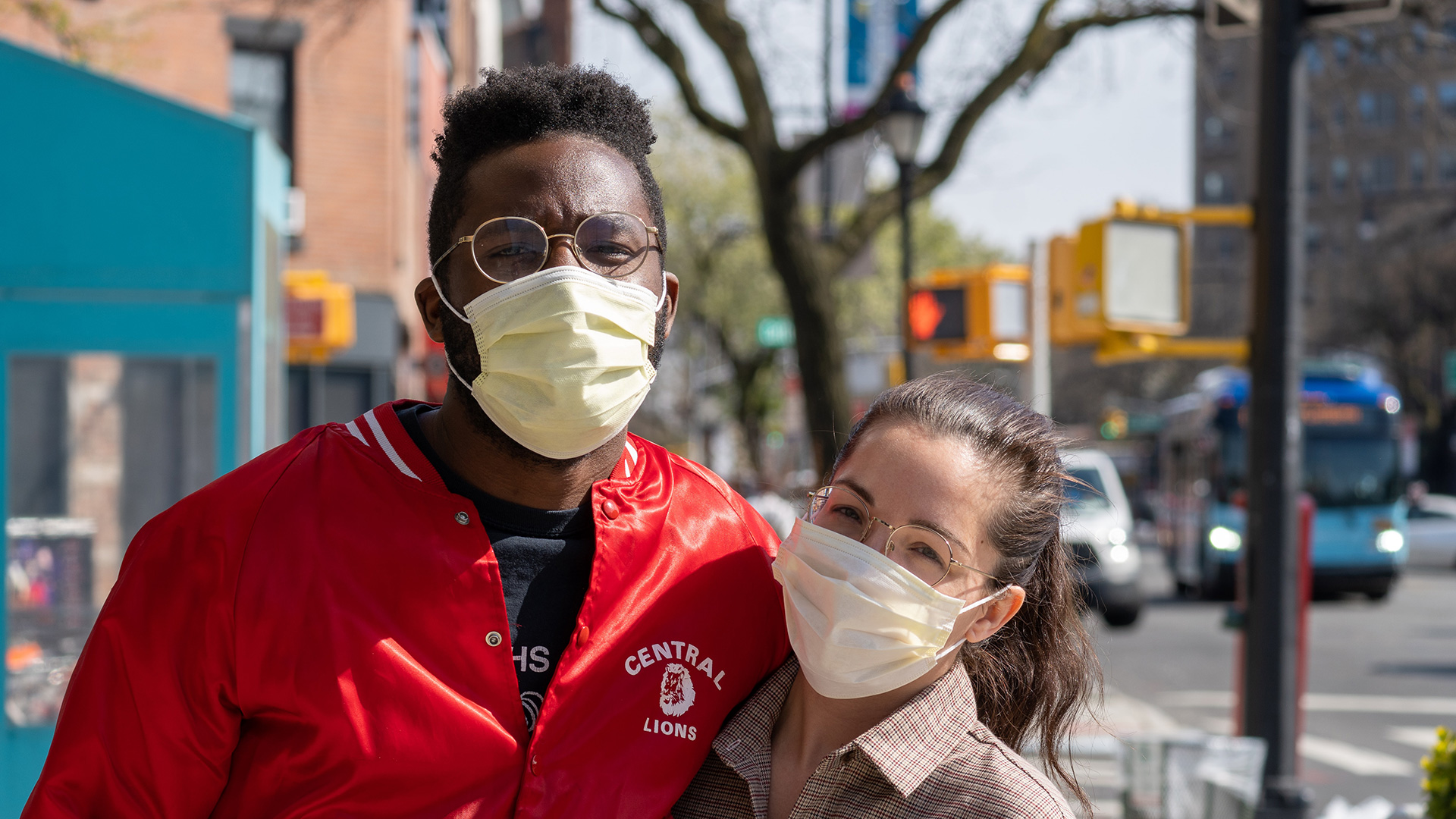

There are several theories for how to stop your glasses from fogging up when you're wearing a face mask. If you're a specs wearer who doesn't want to choose between potentially contracting a horrible virus and being able to see, you'll need to find a way to keep your glasses mist-free when you're out and about.
We've put a few methods to the test, to see how effective they are at stopping your glasses from fogging up when you put on your mask. Read on for what we found. And if you haven't yet got hold of a mask, try our guide to the best face masks for a range of situations.
Method #1: Use a face mask with a nose bridge
First up, use a mask that's fitted around the nose. The closer fitting the top of the mask is to your face, the less breath will be making its escape to the space between your eyes and your specs. Some face masks come with mouldable nose pieces (which is where the biggest gaps might be), and others have a flexible wire along the full top edge.
Does it work?
Yes. I tried a Vistaprint mask with an inbuilt nose piece. With this, the glasses misted up just a tiny bit, but not enough to block vision, and the fog cleared within a few seconds.
I also tried a mask with a wire sewn along the entire top edge – like this unisex one from Reiss – that could be moulded to keep it flat against my cheeks as well as my nose. My glasses remained fog-free. Hurrah!
Method #2: Tuck your mask under your glasses
If you've already purchased a face mask and it doesn't have a mouldable nose piece, this might be your second best bet. This method follows a similar theory as the one above: you tuck the face mask under your glasses frame, to make the gaps smaller, stopping air from escaping from the top of your mask.
Does it work?
Yes! With a couple of caveats. When I tried it, I had to sit my glasses a little lower down the bridge of my nose, because in their normal position the mask is too high up and obscures my vision. This method is a little more fiddly than using a mask with an adjustable top, and how effective it is will probably depend on your style of glasses.
Sign up to the T3 newsletter for smarter living straight to your inbox
Get all the latest news, reviews, deals and buying guides on gorgeous tech, home and active products from the T3 experts
Method #3: Clean your glasses with soap (or shaving foam)
Here's where the tips start getting a little more scientific. The theory is that washing your glasses with soapy water leaves behind a film that reduces the surface tension on the lenses, making the water molecules in your exhaled breath distribute themselves evenly into a transparent layer, rather than clustering together (causing the fog).
To try this method, all your need to do is gently rub a little soapy water across your lenses, rinse it off, shake off the excess water and then dry with a clean cloth or a tissue. Others have used shaving foam, to the same effect.
Does it work?
No. My glasses still steamed up (although they are nice and clean now). This method is backed up by the National Library of Medicine, though – so maybe I'm doing something wrong?
Method #4: Tape the top of your mask up
As with methods #1 and #2, the idea is to stop exhaled air escaping from the top of the glasses. You can use any kind of tape that's not going to take your skin off with it when you remove it (we'd give duct tape a miss).
Does it work?
Probably, but there are more down-sides here: it's not the most comfortable to have tape stuck to your face, and it's going to lose its stick over long periods or if your face is getting sweaty. Plus you're going to look a bit stupid. Still, okay in a pinch.
Method #5: Try an anti-fog spray or wipe
The final technique for how to stop your glasses from misting up when wearing a face mask is to try an anti-fog spray or wipe. These are easy to get hold of and pretty inexpensive. Many are aimed specifically at swimming googles or diving masks, but will work the same way on your glasses.
Does it work?
We haven't been able to try any of these ourselves, but some are extremely well reviewed – for example this Quick Spit Anti-Fog spray has four stars over around 3k reviews on Amazon. Check the reviews for whichever product you're thinking of buying before committing.
Vistaprint face masks | $18 / £17 for one at Vistaprint
Built-in nose piece: Vistaprint makes excellent face masks, with an in-built nose piece you can pinch to fit, and stop air escaping from the top – ideal for glasses-wearers. The design is shaped to fit snugly around the face, too, and there are options for both adults and kids.
Reiss Unisex face mask | £20 for one at Reiss
For an even more custom, close fit around the face, try this face mask from Reiss. It has a wire sewn along the top edge, so you can shape it to your exact facial contours. Excellent for stopping air escaping and fogging your glasses.
Ruth is a lifestyle journalist specialising in sleep and wellbeing. She has tested more mattresses than her small flat can handle and will talk at length about them to anyone who shows even a passing interest, and has had to implement a one-in-one-out pillow policy for fear of getting smothered in the night. As well as following all the industry trends and advancements in the mattress and bedding world, she regularly speaks to certified experts to delve into the science behind a great night's sleep, and offer you advice to help you get there. She's currently Sleep Editor on Tom's Guide and TechRadar, and prior to that ran the Outdoors and Wellness channels on T3 (now covered by Matt Kollat and Beth Girdler-Maslen respectively).
-
 I spent 6 weeks with the FoodMarble Aire 2: here’s what I learned about my gut health
I spent 6 weeks with the FoodMarble Aire 2: here’s what I learned about my gut healthI’ve been testing the clever breath-testing gadget with the companion app over several weeks to find out if it delivers on its promises
By Lee Bell
-
 Oil pulling is going viral on TikTok for stopping morning breath – but does it actually work?
Oil pulling is going viral on TikTok for stopping morning breath – but does it actually work?4 hacks that prevent morning breath, according to a sleep expert
By Bethan Girdler-Maslen
-
 These limited edition McLaren x Loop earplugs are what you need for Formula 1 season
These limited edition McLaren x Loop earplugs are what you need for Formula 1 seasonMcLaren teams up with Loop on limited edition noise-reducing earplugs
By Bethan Girdler-Maslen
-
 3 reasons why you wake up at 3am every night – and how to avoid it
3 reasons why you wake up at 3am every night – and how to avoid itAlways waking up in the middle of the night? This could be why…
By Bethan Girdler-Maslen
-
 Therabody experts give 7 tips for perfecting your sleep routine for World Sleep Day
Therabody experts give 7 tips for perfecting your sleep routine for World Sleep DayFrom breathing exercises to sleep masks, here’s how to prioritise sleep, according to experts
By Bethan Girdler-Maslen
-
 Loop Dream review: super soft earplugs to help you snooze soundly, even if you’re a side sleeper
Loop Dream review: super soft earplugs to help you snooze soundly, even if you’re a side sleeperSquishy silicone and uniquely shaped ear tips take Loop’s nighttime earplugs to dreamy heights
By Joanna Ebsworth
-
 Can’t get to sleep? Grounding bed sheets could be the answer – but I need convincing
Can’t get to sleep? Grounding bed sheets could be the answer – but I need convincingIs this the future of sleep tech?
By Bethan Girdler-Maslen
-
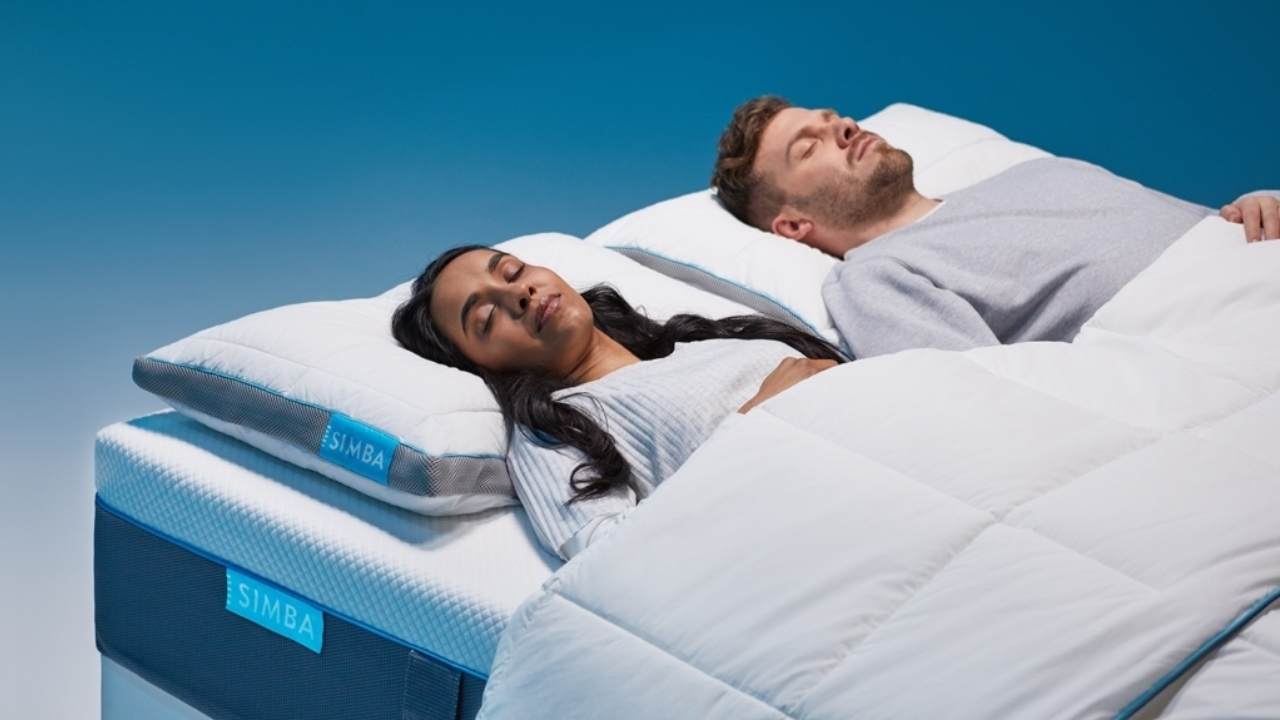 Simba reveals 3 shocking signs of sleep deprivation on the body
Simba reveals 3 shocking signs of sleep deprivation on the bodySimba’s latest study reveals the main physical effects of sleep deprivation
By Bethan Girdler-Maslen
